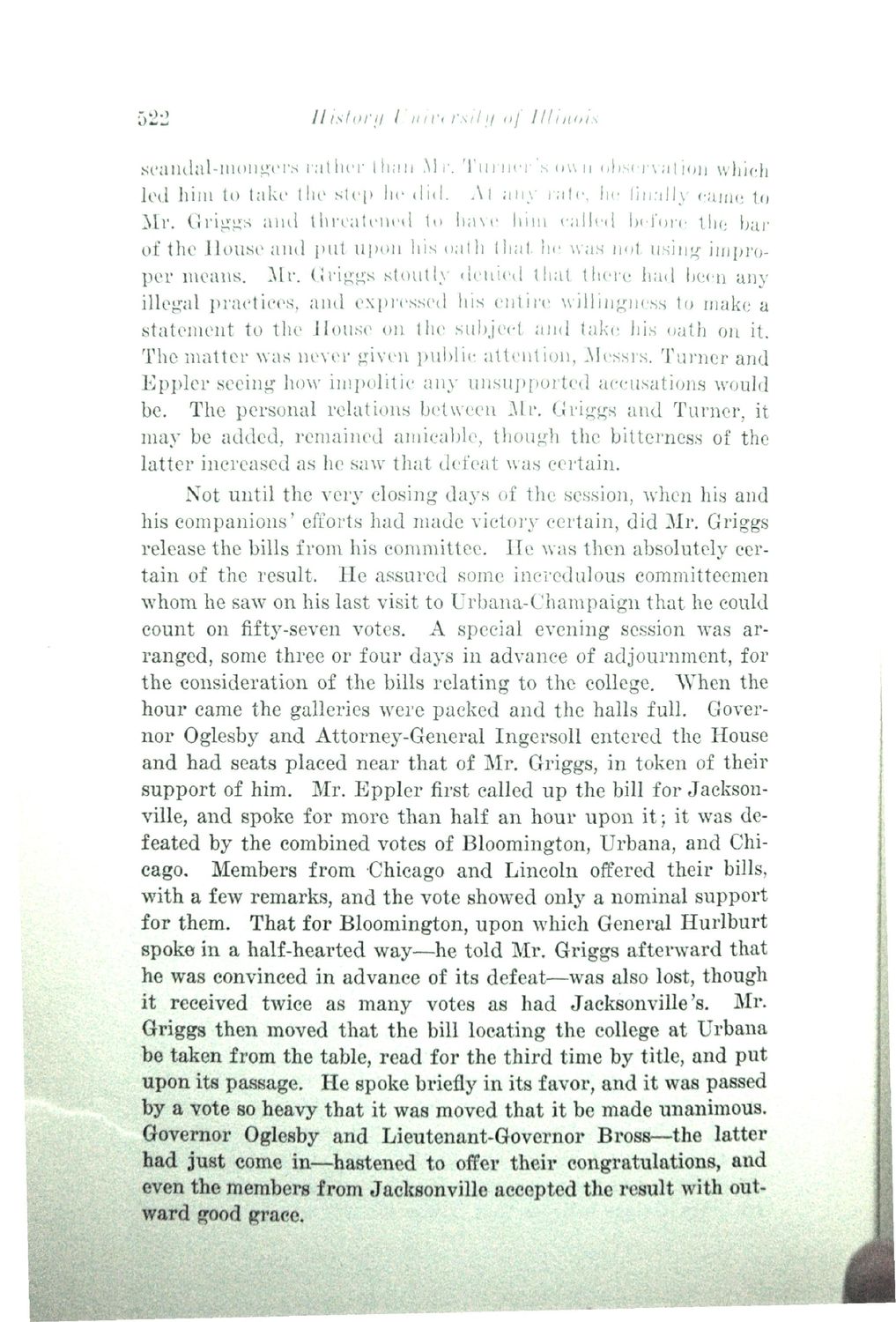| |
| |
Caption: Book - History of the University (Powell)
This is a reduced-resolution page image for fast online browsing.

EXTRACTED TEXT FROM PAGE:
622 History University of Illinois scandal-mongers rather than Mr. Turner's own observation which led him to take the step he did. At any rate, he finally came to Mr. Griggs and threatened to have him called before the bar of the House and put upon his oath that he was not using improper means. Mr. Griggs stoutly denied that there had been any illegal practices, and expressed his entire willingness to make a statement to the House on the subject and take his oath on it. The matter was never given public attention, Messrs. Turner and Bppler seeing how impolitic any unsupported accusations would be. The personal relations between Mr. Griggs and Turner, it may be added, remained amicable, though the bitterness of the latter increased as he saw that defeat was certain. Not until the very closing days of the session, when his and his companions' efforts had made victory certain, did Mr. Griggs release the bills from his committee. He was then absolutely certain of the result. He assured some incredulous committeemen whom he saw on his last visit to Urbana-Champaign that he could count on fifty-seven votes. A special evening session was arranged, some three or four days in advance of adjournment, for the consideration of the bills relating to the college. When the hour came the galleries were packed and the halls full. Governor Oglesby and Attorney-General Ingersdll entered the House and had seats placed near that of Mr. Griggs, in token of their support of him. Mr. Eppler first called up the bill for Jacksonville, and spoke for more than half an hour upon it; it was defeated by the combined votes of Bloomington, Urbana, and Chicago. Members from Chicago and Lincoln offered their bills, with a few remarks, and the vote showed only a nominal support for them. That for Bloomington, upon which General Hurlburt spoke in a half-hearted way—he told Mr. Griggs afterward that he was convinced in advance of its defeat—was also lost, though it received twice as many votes as had Jacksonville's.^ Mr. Griggs then moved that the bill locating the college at Urbana be taken from the table, read for the third time by title, and put upon its passage. He spoke briefly in its favor, and it was passed by a vote so heavy that it was moved that it be made unanimous. Governor Oglesby and Lieutenant-Governor Bross—the latter had just come in—hastened to offer their congratulations, and even the members from Jacksonville accepted the result with outward good grace.
| |